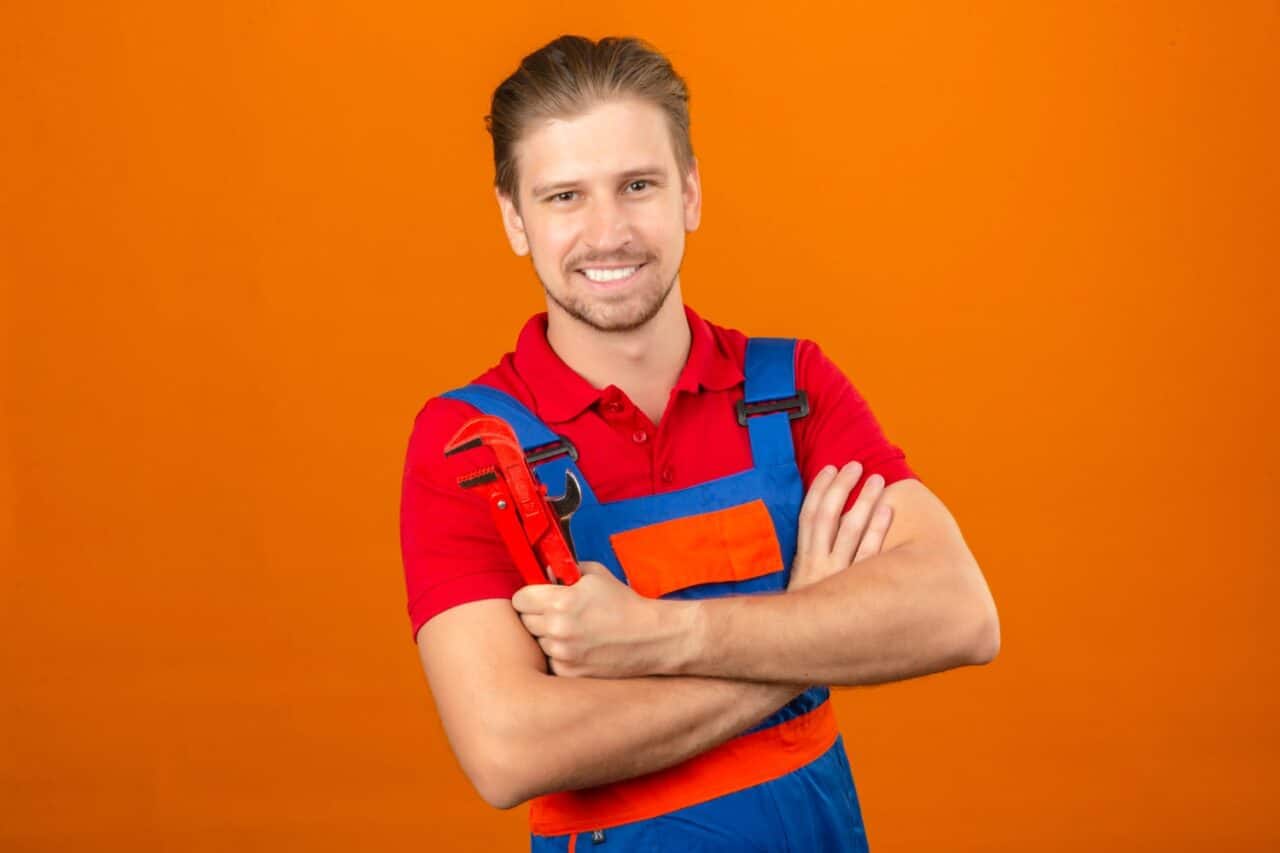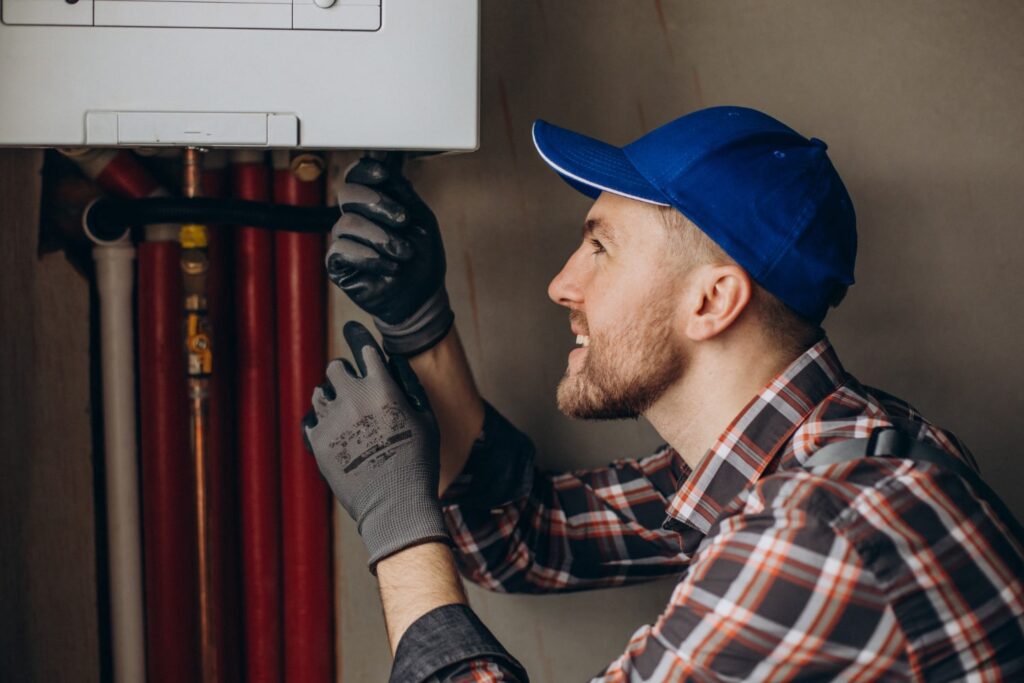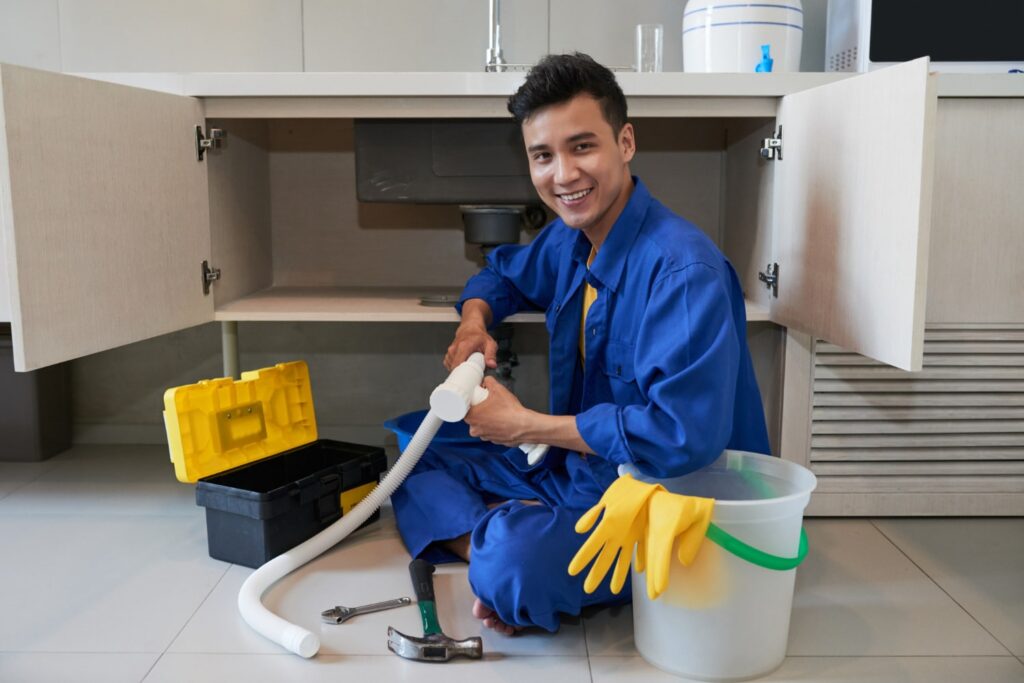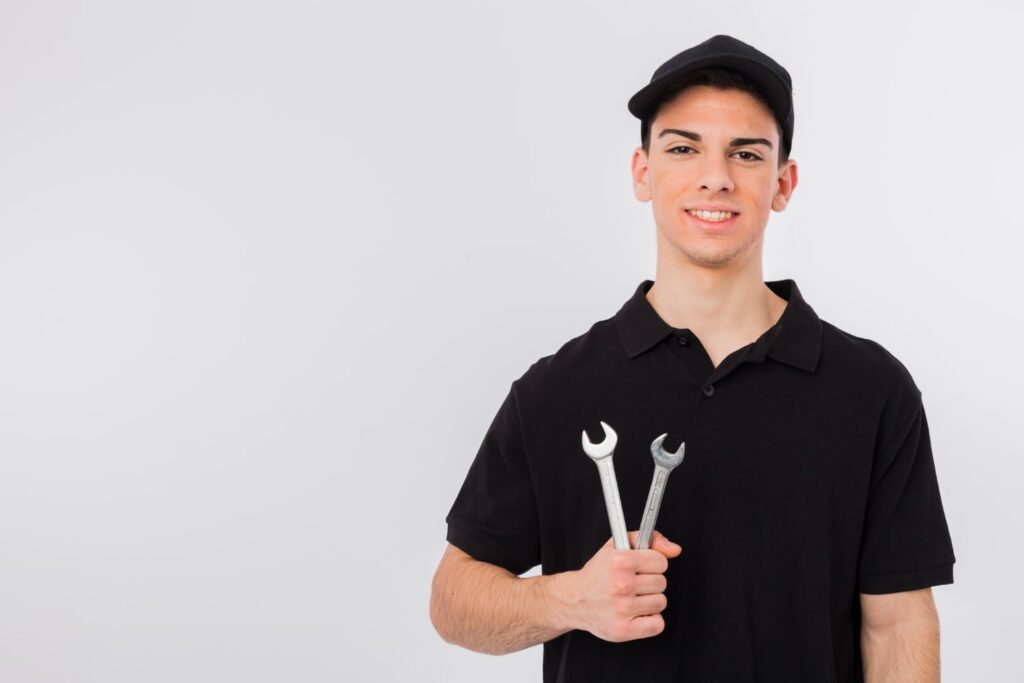It’s common to think of plumbing as a single trade that incorporates all facets of the profession. Plumbing, on the other hand, is a broad discipline with numerous specializations and areas of competence. From small-scale domestic repairs to large-scale commercial installations, the plumbing world is occupied by various types of plumbers, each with their own set of skills and knowledge.
In this article, we’ll delve into the intriguing world of plumbing and look at the various types of plumbers you might come across. Understanding the precise tasks and responsibilities of each type will not only help you make informed selections when looking for plumbing services but will also provide you insight into the enormous range of talents and expertise that plumbers bring to the table.
Understanding the Different Kinds of Plumbers
Residential Plumbers
When it comes to the plumbing systems in homes, having a reliable plumber on call is essential. Residential plumbers work on the distribution and disposal systems of water and wastewater, including the installation, repair, and maintenance of pipelines, fixtures, and other plumbing equipment. Professional residential plumbers in Canada can be employed by plumbing businesses or work independently.
Apprenticeship programs of four to five years of training or more than five years of work experience are usually required in order to get a plumbing certification. Nova Scotia, Prince Edward Island, New Brunswick, Quebec, Ontario, Saskatchewan, and Alberta all require trade certification. Newfoundland and Labrador, Manitoba, British Columbia, the Yukon, the Northwest Territories, and Nunavut offer trade certification, but it is not required.
Residential plumbers-in-training are required to complete an apprenticeship program and then become licensed by their own province or territory. This requires them to demonstrate their knowledge and skill in the field by passing a written exam as well as a hands-on exam.
Professional residential plumbers are responsible for a wide range of services. These include the installation of new sinks, toilets, and showers; the replacement or repair of damaged plumbing pipes; the setup or repair of water heaters; the cleaning of clogged drains; the testing and maintenance of plumbing systems; and the offering of advice on plumbing issues.
Residential plumbers are skilled professionals who can address a wide range of plumbing issues. Here are some common plumbing problems that residential plumbers can fix:
- Dripping faucets – Dripping faucets are a common problem that not only wastes water but can also increase monthly electricity costs.
- Clogged drains – If you don’t take care of clogged drains, they can cause flooding and structural damage to your property.
- Running toilets – Aside from being an annoyance, a running toilet can cause a shocking amount of water to be wasted.
- Low water pressure – Showering, washing dishes, and other routine household tasks might be hampered by insufficient water pressure.
- Damaged pipes – Leaks and possible water supply contamination from damaged pipes are major worries.
- Sewer backups – Health dangers and property damage can result from sewer blockage.
Ignoring these problems will only make the situation worse and drive up the expense of repairs. If you live in Burlington and need a residential plumber, Precise Plumbing is a great choice. You can rest easy knowing that our qualified and certified plumbers will take care of your plumbing needs.
Whether it’s installing new fixtures, fixing broken pipes, or unclogging drains, the experienced team at Precise Plumbing has the skills and knowledge to handle any residential plumbing job with precision and speed.
Commercial Plumbers
Commercial plumbers are the types of plumbers that are very important when it comes to installing, repairing, and keeping up with plumbing systems in industrial buildings. They work on a bigger scale than household plumbers, so they need to know how to use a wider range of plumbing systems and tools.
Commercial plumbers do many things, like install new plumbing systems, fix and maintain old ones, replace fixtures and appliances, figure out plumbing problems, get permits and licenses, and work with building contractors and architects.
The size of their projects is what sets commercial plumbers apart from their residential peers. They work in places like offices, retail shops, restaurants, and industrial facilities.
Commercial plumbers need to know about plumbing codes and laws, pipefitting, welding, electrical work, demolition, carpentry, customer service, and more. They have to be able to work on their own and as a part of a team, follow plans and instructions, and find and fix plumbing problems fast.
Most people suggest getting a high school diploma or something similar if you want to become a commercial plumber. By signing up for a plumbing apprenticeship program, you can learn useful plumbing skills and get hands-on training. Aspiring commercial plumbers must pass the state plumbing test after the apprenticeship to get a plumbing license, which is required in most states.
Industrial Plumbers
In Canada, industrial plumbers are the types of plumbers that are experts at installing, maintaining, and fixing plumbing systems in factories and other industrial areas. They work on many different projects, such as installing water, sewage, and steam systems, keeping boilers and heating/cooling equipment in good shape, and fixing leaks and other plumbing problems.
Industrial plumbers need to know a lot about plumbing theory and practice and be able to work with different materials and tools. They must be able to work safely in many different places, such as tight areas and high platforms.
Their jobs include a wide range of tasks, such as setting up, maintaining, and fixing systems. They work with pipes, valves, and fittings, and they check for leaks and other problems by inspecting and testing. Troubleshooting and fixing plumbing problems, operating and maintaining equipment, following safety rules, and talking to customers, coworkers, and bosses well are all important parts of their job.
To become an industrial plumber, you need a high school education or the equivalent and to go through an apprenticeship program. It’s important to get a license, work in the field, and improve your speaking and problem-solving skills. Keeping up with the latest plumbing trends and tools helps them get even better at what they do.
Industrial plumbers are very important to the Canadian economy because they make sure businesses run smoothly and keep the community safe. If you want a trades job that is both difficult and rewarding, industrial plumbing could be a good choice.
Industrial plumbers work on many different kinds of water systems in factories. Here are some examples of the different plumbing systems that industrial plumbers often work on:
- Water distribution systems: These systems bring water to factories for cooling, cleaning, and making things.
- Wastewater treatment systems: Wastewater from factories need to be cleaned up before it can be released into the environment. Industrial plumbers are in charge of developing, putting in place, and taking care of these systems.
- Fire protection systems: Industrial buildings need reliable fire protection devices to keep the building and the people inside safe. Industrial plumbers set up and take care of fire protection devices like sprinklers, fire pumps, and hydrants.
- Compressed air systems: Compressed air is used for a lot of things in the business world, like running pneumatic tools and equipment. Industrial plumbers set up and take care of compressed air systems, making sure the air is distributed evenly and the pressure is set correctly.
- Steam systems: In industrial settings, steam is used for many things, like heating, cooking, and running machines. Industrial plumbers work on steam systems, making sure that steam is made, moved, and controlled correctly.
Other types of plumbing systems that industrial plumbers handle include:
- Chemical injection systems: These systems put chemicals into lines to keep them from rusting, building upscale, and having other problems.
- Drain and vent systems: Industrial buildings need drain and air systems that work well to get water and moisture out of the building.
- Vacuum systems: In industrial settings, vacuum devices are used to get rid of dust, dirt, and dangerous materials.
- Pollution control systems: These systems are made to get rid of pollutants in rainwater and keep them from getting into the air.
Industrial plumbing systems are made to fit the needs of each individual building. The choice of the system relies on things like the size of the facility, the type of business, and the applications that need water, wastewater treatment, compressed air, or steam.
Industrial plumbers are very important because they make sure that all of these different water systems work safely and well. This makes sure that industrial processes run smoothly and that environmental rules are followed.
Service and Repair Plumbers
Service and repair plumbers are very important in Canada because they help with a wide range of plumbing problems and provide critical services to both residential and business customers.
These types of plumbers are in charge of a wide range of jobs, such as installing, fixing, and taking care of plumbing fixtures and systems. Service plumbers are trained to do a wide range of jobs, such as putting and fixing water heaters, boilers, and other plumbing fixtures that are important for how well plumbing systems work.
They also fix problems with drains, sewers, and septic systems to make sure that water flows well and waste is taken care of properly.
Service plumbers also often use their knowledge and special tools to clear drains and lines that are clogged. They also know how to find and fix leaks quickly, whether it’s a dripping tap, a leaking pipe, or a hidden water leak. This keeps water damage from happening and helps save water resources.
Service plumbers also treat and filter water to improve its quality, find solutions to plumbing problems using their problem-solving skills, and teach customers how to keep their plumbing safe and in good shape.
Service plumbers need to be good at what they do, which means they need to know about plumbing methods, materials, and how to read blueprints and schematics. They should be able to work on their own or as part of a team to make sure that service is quick and effective.
When choosing a service plumber, it’s important to look at respected companies that have a history of doing good work. It is best to get quotes from more than one company and ask about their experience, qualifications, and warranty policies so you can make a choice that fits your plumbing needs.
Construction Plumbers
Construction plumbers are the unsung heroes of the construction business, participating at every stage of the building process, from planning to finishing touches. During the early stages, they collaborate with architects and engineers to precisely develop plumbing systems that suit the specific needs of the future tenants. It’s a fine balance of functionality, efficiency, and aesthetic appeal.
Once the ideas are in place, construction plumbers jump right in, collaborating with other experienced tradespeople such as electricians and carpenters to bring the vision to life. They expertly install the plumbing system, weaving pipes through the structure and ensuring everything is perfectly aligned. These expert workers also install the important fixtures that bring a structure to life, such as exquisite sinks and magnificent showers, transforming empty spaces into functional and visually stunning locations.
However, the task of construction plumbers does not end with the installation. They rigorously test the system, looking for leaks and other problems to ensure that everything works well. They do any necessary repairs with their trained eyes and competent hands, leaving no space for compromise when it comes to safety and dependability.
Construction plumbers protect our structures by ensuring that the plumbing systems in the buildings we live in are strong and efficient. Their knowledge is vital in everything from establishing water supply lines that bring life to every faucet to running sewer and gas lines that quietly transport garbage. They design and install drainage systems that keep buildings dry and clean.
A construction plumber’s profession necessitates a wide skill set and knowledge base. They must be well-versed in plumbing concepts and procedures, as well as mechanical prowess and problem-solving ability, in order to deal with any issues that may emerge on-site. Effective communication is essential as they work closely with architects, engineers, and other craftsmen to develop plumbing systems that exceed expectations.
Construction plumbers are in high demand, with an optimistic career outlook that presents interesting chances. As the demand for new construction grows and old plumbing systems require repairs, these trained individuals will be at the forefront of the industry’s expansion.
If a career in construction plumbing piques your interest, take the first steps toward making your aspirations a reality. Begin by obtaining a high school diploma or its equivalent, and then consider furthering your education with college courses in plumbing or similar professions. Seek apprenticeships or entry-level work with reputed plumbing companies after completing your schooling. Dedication, experience, and training will pave the road for you to become a journeyman or master plumber, a profession that recognizes and honours your hard work and competence.
Specialized Plumbers
These expert plumbers have a distinct set of talents and knowledge that propel them to new heights in the profession, specializing in a wide range of areas that will astound you.
Water treatment plumbers are the unsung heroes who ensure that every drop of water we consume is perfectly cleansed. They use their knowledge to install and maintain sophisticated systems that offer us clean drinking water and luxurious bathing experiences.
Water treatment plumbers, on the other hand, are the keepers of cleanliness, protecting our environment by building and maintaining systems that treat and manage wastewater from homes, companies, and industries.
Admire stormwater management plumbers who labour tirelessly to develop sophisticated systems that collect and divert stormwater runoff, preventing flooding and preserving nature’s delicate balance.
Fire protection plumbers enter the domain of heroes, building and maintaining systems that safeguard our homes and businesses from the ravages of fire, providing us with peace of mind and security.
Green plumbers are innovators for individuals who care about sustainability and the environment. They install and maintain plumbing systems that embrace sustainability, from rainwater harvesting systems to composting toilets, using their understanding of ecologically friendly materials and procedures. They are the trailblazers paving the way for a brighter future.
Specialized plumbers have not just the fundamental skills of general plumbers, but also the expertise that distinguishes them. They are the types of plumbers that are skilled at using specific tools and equipment and navigating the complicated web of regulations that govern their sector.
Importance of Choosing the Right Type of Plumber
When it comes to plumbing problems, selecting the correct types of plumbers is critical. To guarantee that the job is done properly and effectively, each field of plumbing requires specific knowledge, abilities, and expertise. A professional plumber’s experience is useful whether working with commercial plumbing, industrial plumbing, water treatment, wastewater treatment, stormwater management, fire protection, or green plumbing.
You can have peace of mind knowing that your project or repair is in the hands of a qualified professional if you hire a plumber who specializes in your unique plumbing needs. They understand the complexities of their sector, have access to specialist tools and equipment, and are up to date on industry rules. They can give top-notch solutions adapted to your needs thanks to their knowledge.
Look no further than Precise Plumbing if you need to hire an expert plumber in Burlington. We provide a wide range of specialized plumbing services with a staff of highly competent and experienced plumbers, guaranteeing that your needs are addressed with accuracy and perfection.
Do not accept anything less than the best. Contact Precise Plumbing today to see how our specialist plumbing services might help you. Your plumbing requirements deserve the attention and skill that only a trained plumber can deliver.




